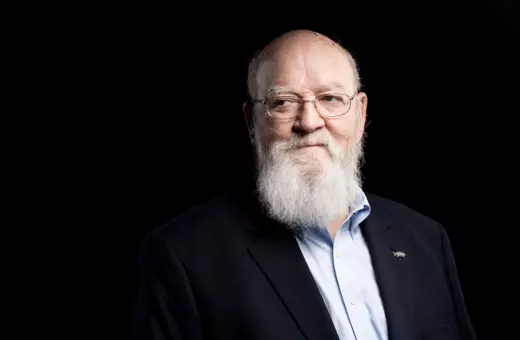Conferences on philosophy have much in common with academic conferences on anything else. But in one way they differ. Amongst philosophers, a lecture often matters less than what follows — ‘Q&A’, the question-and-answer period. That is when the speaker’s arguments and conclusions are put to the test.
Questioners propose counterexamples, allege fallacies, discern ambiguities. In response, the speaker fights for the life of their cherished ideas. Exchanges continue, back and forth, over several turns. The rest of the audience watches and listens keenly, as if following a chess match, trying to work out who’s winning.
Sometimes a draw is offered with the words “It’s a stand-off” and tacitly accepted; sometimes the chair intervenes to cut short a stalemate. There is a code of signals to the chair: a raised hand means a new question, a raised finger a follow-up on the current point. A serious conference may schedule an hour for Q&A after each talk.
When it comes to the outcome, the chess analogy is misleading, since it suggests that, once the exchange is over, it’s always clear who won. But the rules of argument are much less clear than the rules of chess, and can themselves be disputed, so two sides may disagree on the legitimacy or effect of a move. The chair is no umpire or referee, and doesn’t rule on such matters. There may be no consensus on who had the better of the exchange. Perceptions can depend on prior theoretical commitments. Indeed, the exchange may itself have been partly or wholly on the legitimacy of moves in the lecture.
___
"When the philosophical climate goes bad, aggressive bluster or suave sophistry can silence careful reasoning. But to discourage sharp-edged questions only exacerbates matters."
___
Some philosophers are unhappy with this model of philosophical discussion as gladiatorial combat. Those who lack the confidence to step into the arena are consigned to the passive role of mere spectators, yet self-confidence is not highly correlated with insight. What has single combat to do with the search for truth? There is something to such worries. When the philosophical climate goes bad, aggressive bluster or suave sophistry can silence careful reasoning. But to discourage sharp-edged questions only exacerbates matters, by making it easier for high-prestige speakers to bluff, and get away with bad arguments.
If the emperor has no clothes, everyone should feel entitled to say so. I once heard a lecture by a well-known scholar of the philosopher Friedrich Nietzsche, urging that Nietzsche’s philosophy is not mere academic theorizing; if taken seriously, it transforms one’s life into something radically different and unconventional. In Q&A, an undergraduate asked him how come in that case he was a professor of philosophy delivering an academic lecture in the conventional way to a student philosophy society. The Nietzsche scholar was huffily dismissive: “I don’t see the relevance of that question”. Everyone else in the room did. The emperor may not enjoy being told he has no clothes, but he can still benefit; he may even take the radical step of getting some. As for the Nietzsche scholar, twenty years on he remains a professor of philosophy in the same respectable department, regularly publishing academic volumes on his usual themes.















Join the conversation